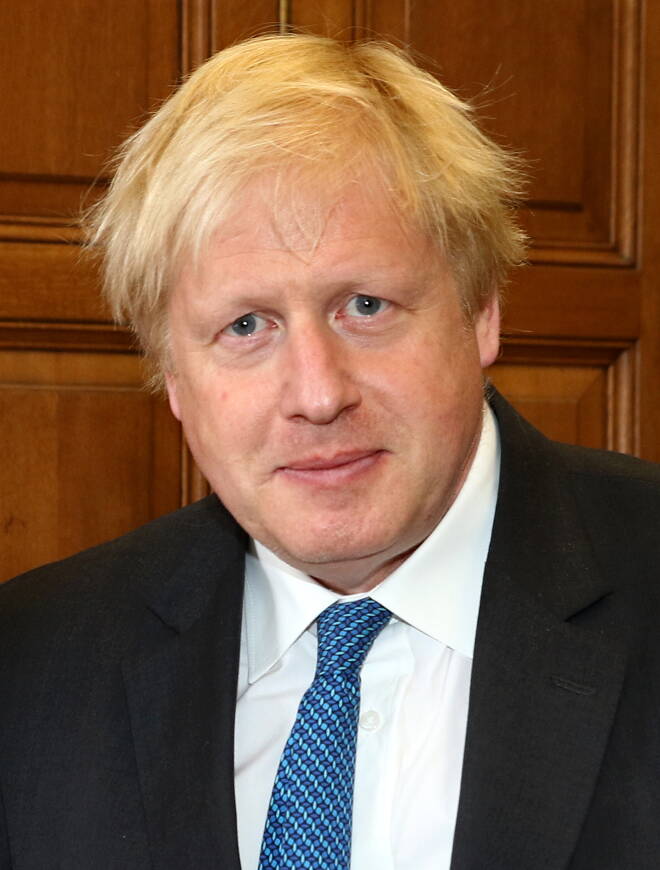Advertisement
Advertisement
Boris Johnson – The Early Days Will be Defining
By:
As Johnson enters office, Brexit and rising tension in the Middle East will be early tests for the new British PM.
On Tuesday, Boris Johnson was formally announced as the winner of the UK leadership race. There were no surprises in the outcome that propelled the former Mayor of London into Number 10 Downing Street.
Few will have forgotten Johnson’s Leave campaign back in 2016 that ultimately led to Britain voting to go it alone.
Having successfully navigated his way back into the higher echelons of global politics, there are a number of minefields left to navigate through.
The Geopolitical Landscape
It goes without saying that Brexit will continue to be the new British Prime Minister’s main area of focus. With the House of Commons summer recess starting tomorrow and extending to 3rd September, Johnson will have less than 50-days to get a Brexit deal voted in by the UK Parliament.
Perhaps of greater significance will be the time he has remaining to bring together a divided Conservative Party.
Since Johnson’s victory, resignations have been announced and more are likely. Philip Hammond, the Chancellor is due to submit his resignation, which would be the highest-profile resignation.
With the Tories divided on Brexit and having lost the support of voters, Johnson’s days as British PM could be numbered. After all, it is not the British electorate that has voted Johnson in, but Conservative Party members.
Animosity towards Brexit suggests that Johnson and the Tories wouldn’t stand a chance in another General Election. For now, the UK Parliament’s summer recess will at lease avert a vote of no confidence.
Iran and the U.S
Since the diplomatic scandal that strained Britain’s special relationship with the U.S, tensions in the Middle East have been on the rise.
Iran has been far more active and reactive and continues to push Trump’s buttons. Boris Johnson is expected to renew that special relationship with the U.S. Failure to do so would become a very early first black mark for the PM-elect.
The British Prime Minister’s handling of the Iran situation and the delicate balance with the U.S will be key in the early days.
British voters and members of an already divided Tory Party will certainly not be wanting the UK to once more become an aggressor alongside the U.S.
Brexit and the UK economy
The UK economy will be another area of focus and test for the new British PM. In spite of Brexit uncertainty that has shrouded Britain, the economy continued to perform.
Voter sentiment towards Boris Johnson’s victory and the new British PM’s stance on Brexit could be damaging, however.
With Johnson clearly looking to pull Britain out of the EU, deal or no-deal, domestic consumption could slump.
The British PM will likely need to put aside his own views on Brexit and deliver the best possible outcome for Britain.
If the lead up to the 2016 EU Referendum is anything to go by, this may prove to be a challenge. Talks of suspending Parliament and more could do far more harm now that Johnson has taken over the leadership of the country.
The Pound
At the time of writing, the Pound was up by 0.03% to $1.24427.
With a lack of stats to distract the markets, the focus will remain on Johnson and what lies ahead. More Conservative MP resignations would weigh on the Pound.
The markets will also need to consider any Brexit chatter. Will Johnson stand firm on his Brexit strategy or change tact on the 31st October deadline?
The EU hasn’t helped his cause as he enters number 10. This does suggest that Britain will get more of the same from the EU. That’s not a huge surprise…
About the Author
Bob Masonauthor
With over 28 years of experience in the financial industry, Bob has worked with various global rating agencies and multinational banks. Currently he is covering currencies, commodities, alternative asset classes and global equities, focusing mostly on European and Asian markets.
Advertisement
